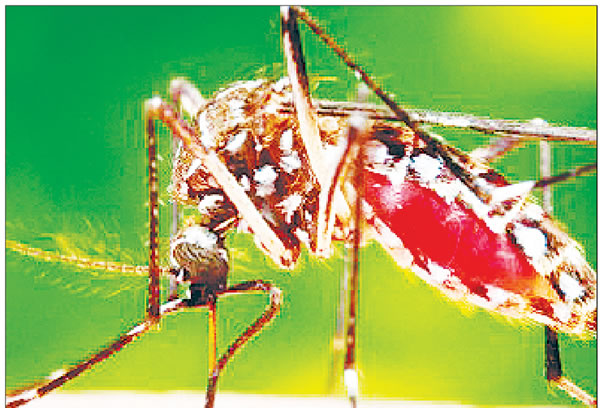If you have planned to take a vacation or business trip to Brazil or another country in South America, you may need to reconsider it.
The simple reason is that the Zika virus, which has led to over 500 babies being born with neurological deformities, has spread to 25 countries on the continent.
The virus is getting global attention at present because of its alarming connection with Microcephaly — a neurological disorder that results in babies being born with abnormally small heads.
Since last November, Brazil has seen nearly 4,000 cases of microcephaly in babies born to women who were infected with the virus during their pregnancies.
To avert such disasters, the Centres for Disease Control and Prevention in the US is warning pregnant women against travelling to those areas. Health officials in the affected countries have warned their female citizens not to get pregnant for up to two years.
This warning may seem extreme. But, believe it or not, the virus is quite deadly.
For one, there is no vaccine or cure for those infected with the virus. It is also spread by mosquitoes, a common parasite in tropical regions of the world, including West Africa.
History
Did you know that the Aedes aegypti mosquito that transmits the virus was first discovered in Africa in 1940?
According to the World Health Organisation , Zika virus occurs in tropical areas with large mosquito populations and it is known to circulate in Africa, the Americas, Southern Asia and Western Pacific.
The WHO states that the first documented outbreak of the Zika virus disease occurred in the Pacific.
It adds that since 2013, cases and outbreaks of the disease have been reported from the Western Pacific, the Americas and Africa.
The global body warns that given the expansion of environments where mosquitoes can live and breed, facilitated by urbanisation and globalisation, there is potential for major urban epidemics of Zika virus disease to occur globally.
How it spreads
The parasite spreads when the Aedes mosquito bites a person with an active infection and then spreads the virus by biting others. Those people then become carriers during the time they have symptoms.
According to the Centre for Disease and Control, these mosquitoes typically lay eggs in and near standing water in things like buckets, bowls, animal dishes, flower pots and vases.
The CDC says that these mosquitoes are aggressive day-time biters as they prefer to bite people and live indoors.
Symptoms
The good news is that most people who have the Zika virus will not come down with fever. The WHO estimates that only one out of five infected persons will fall ill.
It states that the most common symptoms of the virus are fever, rash, pain in the joints, or conjunctivitis (red eyes). Other common symptoms include muscle pain and headache. The incubation period (the time from exposure to symptoms) for Zika virus disease is not known, but it is likely to last between a few days and a week.
The virus, experts from the CDC note, usually remains in the blood of an infected person for a few days. But it can be found to last longer in some people.
Treatment
There is currently no vaccine or medication to prevent or treat Zika infections. Doctors recommend that anyone with symptoms of fever should take medicines, such as acetaminophen or paracetamol, to relieve fever and pain and visit the nearest hospital.
The best treatment for now is prevention.
Prevention
Although no case of Zika infection has been recorded in Nigeria, experts say that one can take certain precautions to reduce one’s vulnerability to the disease.
A physician, Dr. Moruf Abdulsalam, says Nigerians may be vulnerable to the disease because of our dirty environment and poor waste disposal system, which helps mosquitoes to thrive.
Abdulsalam notes that the unhygienic environment and poor sanitary conditions in many homes in the country pose great challenges to the eradication of the disease.
“The species of mosquitos that carries the virus thrives in water-logged areas or environments with inadequate hygiene facilities. Also, the mosquitoes live in dirty environments. Unfortunately, our waste disposal system in Nigeria is very poor.
“People dump refuse in drainage channels and on the streets, inviting mosquitoes to their homes and surroundings. The solution is simple: keep mosquitoes away from your home,” he counsels.
A pharmacist, Mr. Olumide Akintayo, notes that insect control measures, such as spraying insecticides indoors, are powerful ways to prevent mosquitoes from turning our homes into breeding grounds
Akintayo states, “Indoor spraying is effective for three to six months, depending on the insecticide used and the type of surface on which it is sprayed. But, you can only get its full potential if 80 per cent of the houses in a neighborhood are doing it.”
He also recommends that people living in mosquito-prone areas, such as those living in coastal areas, watersides and densely populated areas should adopt the use of insecticide –treated mosquito nets in their homes.
Finally, if you suspect that you or anyone else has the symptoms of fever, do not treat yourself. Please visit a doctor or hospital closest to you for proper diagnosis and treatment.
Fever, according to doctors, is one of the misdiagnosed disease conditions in the country due to self-medication and treatment.
NB: If you do not sleep under insecticide-treated mosquito nets, please get one today. Do all you can to keep mosquitoes off your home.
PUNCH.

